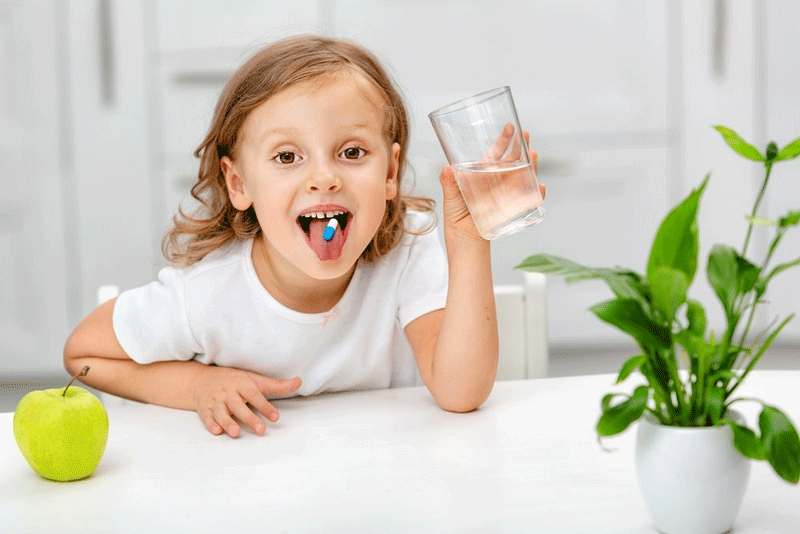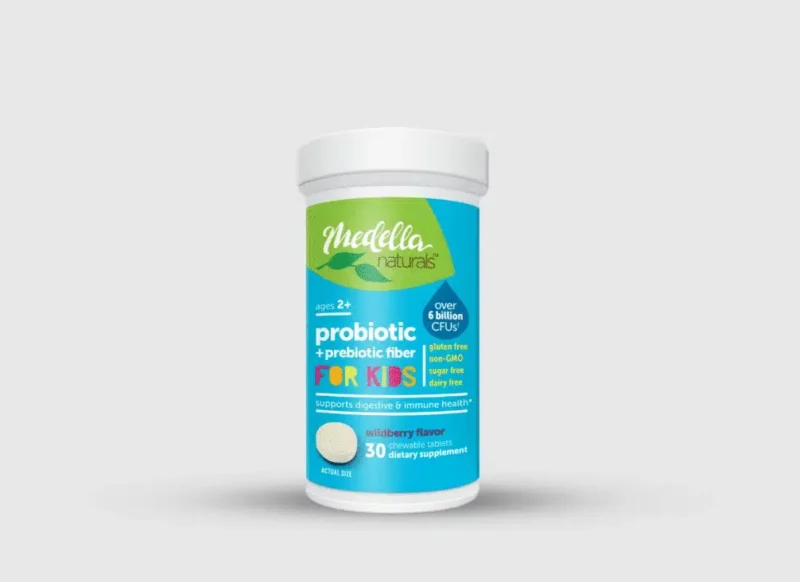In recent years, the topic of probiotics has gained considerable attention, and as a parent, you might be curious if your child requires them and how to incorporate probiotic-rich foods into their diet.
Probiotics are good bacteria that help in maintaining a healthy digestive system. They are crucial for improving gut health, strengthening the immune system, and reducing inflammation.
Encouraging children, particularly picky eaters, to consume enough probiotic-rich foods can be daunting. In this article, I will delve into the essential aspects of probiotic foods for children, including the types of probiotic-rich foods available and the health benefits of probiotics for your child.
12 Probiotic-Rich Foods For Kids
Probiotic-rich foods can be beneficial for children’s digestive health and overall well-being. Here are some kid-friendly, probiotic-rich foods:
- Yogurt: Yogurt is a classic and tasty source of probiotics. Look for plain or low-sugar yogurt with live active cultures. Add some fresh fruits with a drizzle of honey to make it more appealing to kids.
- Breast Milk: Breast milk is the original and most natural source of probiotics for infants. It provides essential nutrients and contains a combination of probiotics (beneficial bacteria) and prebiotics (nutrients for these bacteria). Breastfeeding is a fundamental way to fortify your baby’s gut health.
- Kefir: Kefir is a fermented milky drink with a taste and texture similar to yogurt. It’s available in various flavors and can be enjoyed as a drink or used in smoothies.
- Cottage Cheese: Cottage cheese with live cultures can be a good source of probiotics. Mix it with fruits or a drizzle of honey for a tasty snack.
- Tempeh: Tempeh is an excellent choice for probiotic-rich and plant-based foods to incorporate into your child’s diet. Made from fermented soybeans, tempeh offers a gentle, slightly nutty flavor and boasts a firmer texture than tofu.
- Fermented Pickles: Pickles naturally fermented in brine (not vinegar) are a good source of probiotics. Ensure they are labeled as “live cultures” or “raw” for maximum benefit.
- Sauerkraut: Sauerkraut, made from fermented cabbage, contains probiotics and can be a fun addition to sandwiches or hot dogs.
- Kimchi: This spicy and flavorful Korean fermented cabbage dish may be an acquired taste for some kids, but those who enjoy spicy foods might like it.
- Miso Soup: Miso is a fermented soybean paste used in Japan to make miso soup. It has a mild, savory flavor that many kids find appealing.
- Probiotic Smoothies: Blend yogurt or kefir with fruits like bananas, berries, and honey to create delicious and nutritious smoothies.
- Green Peas: Green peas provide a probiotic boost and many other nutritional benefits. They are rich in fiber, protein, and vitamins A, C, B6, and K. Additionally, they provide essential minerals such as magnesium and folate.
- Chewable Probiotics Tablets Or Powder: Kids’ probiotics can be easily consumed in powdered form in smoothies or soups.
Benefits Of Probiotics Rich Food For Children

The potential health benefits of probiotic foods for children are continually emerging in research, and studies indicate that probiotics may contribute to:
- Managing Acne
- Addressing Allergies, Asthma, and Eczema
- Promoting Oral Health by Reducing Cavities
- Supporting Immune Health against Colds and Flu-like Respiratory Infections
- Enhancing Digestive Health, Alleviating Constipation, Antibiotic-Resistant Diarrhea, and Reflux
- Alleviating Infant Colic Symptoms
- Influencing Mood and Behavior
- Improving Sleep Patterns
- Assisting in the Management of Ulcerative Colitis
When Should Kids Take Probiotics

While it’s good to focus on feeding kids foods with probiotics, there are times when a probiotic supplement is needed.
If your child has one of these issues, a probiotic intake might be a good idea:
- If they have colic as a baby.
- If they have a tummy ache or Irritable Bowel Syndrome (IBS).
- If they get constipated often.
- If they take antibiotics and get diarrhea because of it.
- If they often get sick with respiratory infections.
Conclusion
Incorporating probiotic-rich foods into your child’s diet can contribute to their overall well-being, particularly in digestive health and immunity. These foods offer a natural and nutritious way to support a balanced gut microbiome, potentially alleviating various health concerns.
Frequently Asked Questions
How can I encourage my child to eat probiotic-rich foods?
Incorporate probiotic-rich foods into smoothies, yogurt parfaits, or toppings on favorite dishes to make them part of everyday meals. You can also involve your child in meal preparation and educate them about the benefits of these foods.
Are there any side effects of probiotics for kids?
Probiotic side effects are usually mild, such as gas or bloating.
Are probiotic supplements necessary for kids if they eat probiotic-rich foods?
In many cases, probiotic-rich foods provide sufficient beneficial bacteria for children. However, probiotics supplements are recommended for specific health conditions or limited dietary intake. Always visit a healthcare provider before giving your child probiotic supplements.

